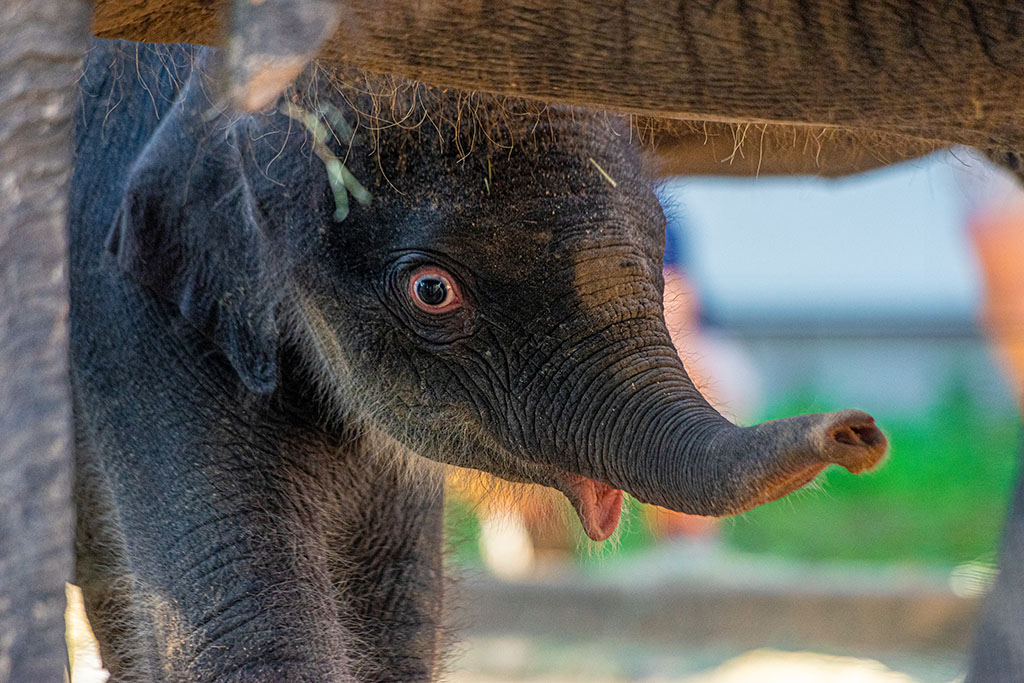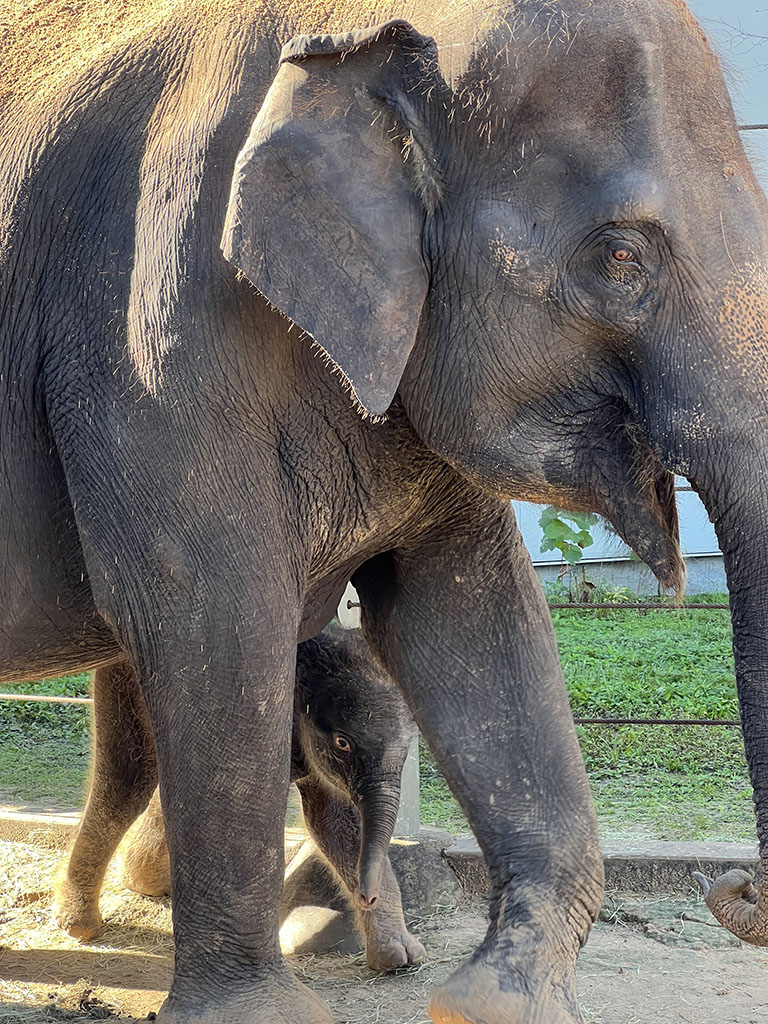January 14, 2025
New at the Zoo – Meet Baby Kirby, a Bouncing Baby Girl Asian Elephant

Baby elephant Kirby
At just 314 pounds at birth, little Kirby was up and nursing within an hour and a half of her birth at the Houston Zoo on November 15. Mom Shanti — at 34 she’s not quite middle-aged for a female Asian elephant — went through 19 hours of labor. (And this after being pregnant for 21 months! Elephants have one of the longest gestation periods known to land mammals.)
“The elephant care team has been providing around-the-clock care for both Kirby and Shanti and both are doing fantastic,” says elephant curator Rob Bernardy. “We couldn’t be happier to welcome her to the elephant family here at the Zoo.”
Both mother and daughter were closely watched by staff during the birth in the McNair Asian Elephant Habitat cow barn and underwent post-natal exams. They then spent several days bonding behind the scenes before greeting their adoring public. Kirby has two siblings, Nelson and Joy. Her father is assumed to be a 58-year-old elephant named Thailand, who at 58 is the oldest breeding male Asian elephant in North America. Kirby brings the number of the Houston Zoo herd to 13. Four full grown adults, three subadults, and now six juveniles.
Asian elephants, which typically weigh between 6,000 and 12,000 pounds, are an endangered species. Much more so than their African relatives. The Asian populations have declined by at least 50 percent in the last three generations to just 15 percent of its historic range. There are fewer than 50,000 Asian elephants left in the wild today, mostly in India. They are threatened by habitat loss, poaching, animal trafficking, the deadly endotheliotropic herpesvirus (EEHV), and human-elephant conflict.

But just by coming to visit Kirby and her family, you can help those Asian elephants in the wild. Just by visiting the Houston Zoo, guests help save baby elephants and their families in Asia. A portion of each zoo admission and membership goes straight to protecting wild elephants in Asia. The Bornean elephant population has increased since the Houston Zoo started its wildlife saving support in 2007. The Houston Zoo provides funds for elephant conservationist, Nurzhafarina “Farina” Othman and her team in Asia, to put tracking collars on wild elephants. The collars are used to follow wild elephants, collecting valuable movement data that is used to inform future protection for the elephant families as they travel through the forests.
The Houston Zoo is also a leader in global EEHV efforts. The Zoo’s veterinarians and elephant care team established a research collaboration in 2009 with herpes virologist Dr. Paul Ling at Baylor College of Medicine’s (BCM) Department of Virology and Microbiology, which has led to significant advancements in the study of EEHV and is leading the way towards the creation of an EEHV vaccine.
by Marene Gustin
credit photos to: Kevin Kendrick / Houston Zoo
